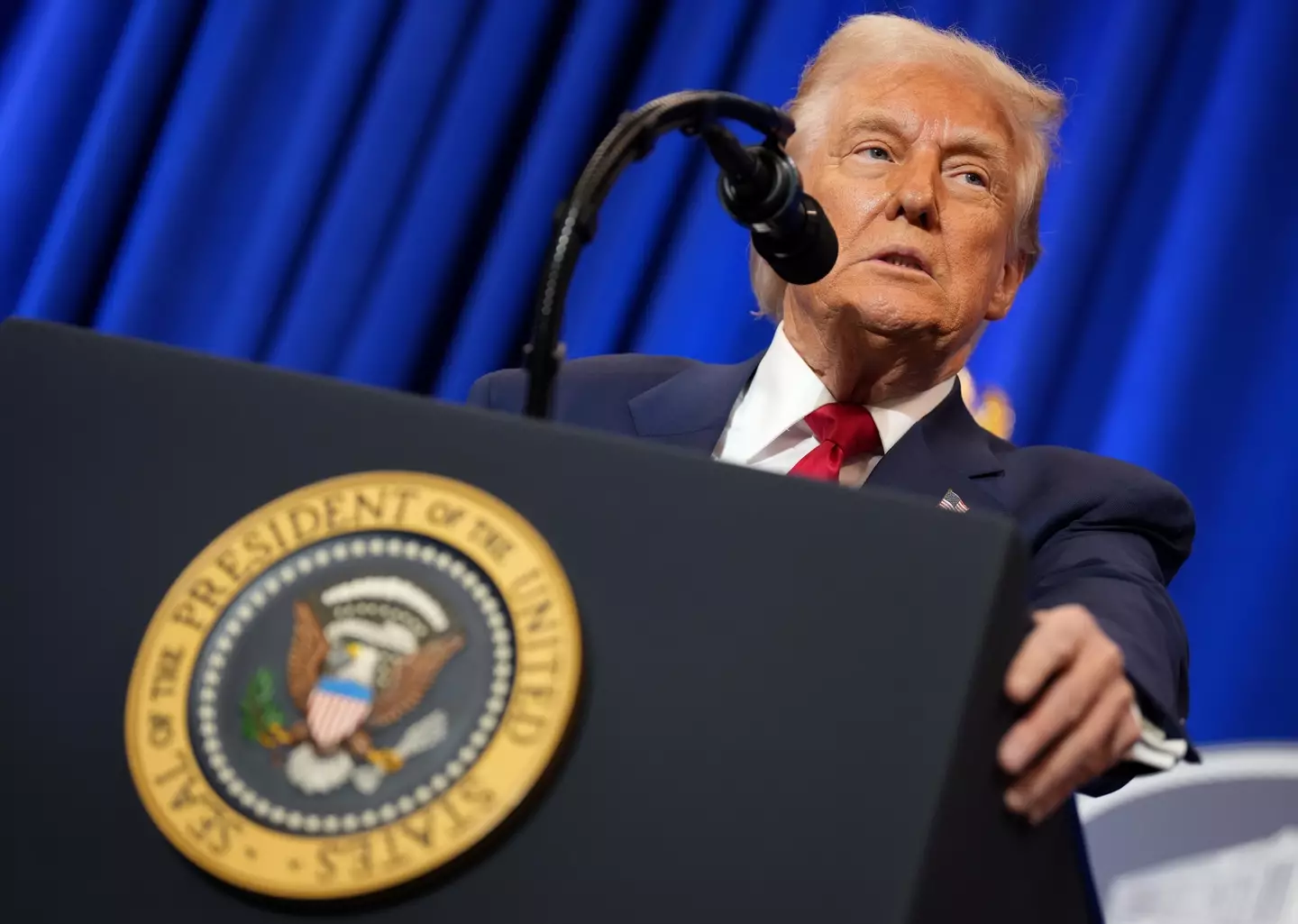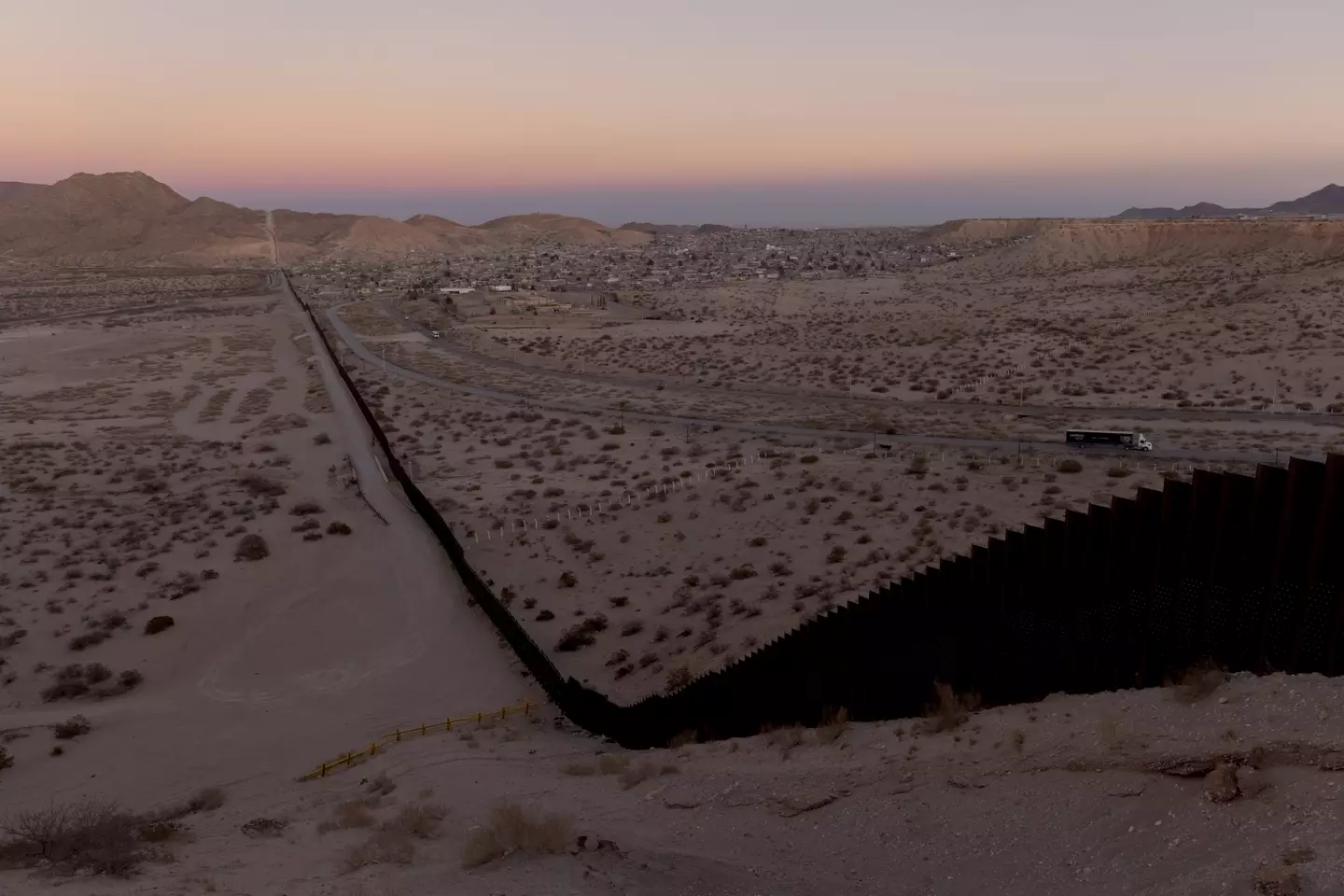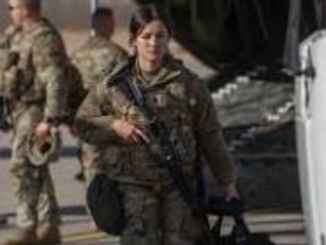
has long pledged to clamp down on migration in the US and recently shipped 250 alleged criminals to El Salvador’s mega-jail, which he was able to do so by invoking a centuries-old law that could allow the president to fast track deportations.
Titled the Alien Enemies Act of 1798, the 18th century legislation was created in response to spying and sabotage during tensions with France at the time.
{snip}
As Trump continues to stick to his word and tackle migration, it’s been reported that the president’s team is making a bid to militarize and take control of a chunk of the southern border.

Donald Trump has suspended the entry of all undocumented migrants to the US (Andrew Harnik/Getty Images)
If the plans go ahead, military personnel would be able to temporarily hold migrants who try cross the border illegally, according to a handful of officials familiar with the matter who spoke to The Washington Post.
{snip}
This so-called ‘buffer zone’ would serve as a kind of military base, thus giving soldiers the right to hold trespassers. The ‘zone’ would also measure at around 60 feet deep and could potentially go on to spread to California.
It’s believed that the military would only hold illegal immigrants if Customs and Border Protection officers (CBP) weren’t immediately available to arrest them as military officials do not have the authority to arrest someone outside of a military base, the Washington Post reports.

A portion of the border wall overlooking New Mexico, Texas, and Cuidad Juarez, Mexico (Anna Watts For The Washington Post via Getty Images)
{snip}
The Brennan Center for Justice explains: “The Posse Comitatus Act bars federal troops from participating in civilian law enforcement except when expressly authorized by law. This 143-year-old law embodies an American tradition that sees military interference in civilian affairs as a threat to both democracy and personal liberty.”
When asked for comment, the press operations for the US Department of Defense told UNILAD: “We have nothing to announce at this time.”
UNILAD has approached The White House, Pentagon and Department of Homeland Security for comment.
